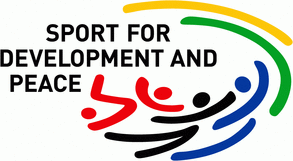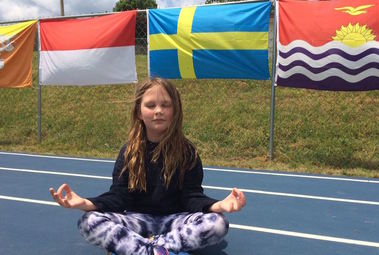 The global sport for development and peace (SDP) movement dates back to the historic Olympic Truce in Ancient Olympia. Today the movement is increasingly popular, with over 950 organizations and over 8,000 SDP “team players” registered on The International Platform on Sport and Development, a key online network dedicated to the SDP movement. Many international NGOs, as well as twenty-eight UN-affiliated agencies, are also integrating sport into their policies and programs at the country level. Sport as a tool for development is becoming increasingly recognized globally, highlighted recently in the United Nations’ post-2015 development agenda as an “important enabler of sustainable development”. This narrative has a familiar ring to it where, since the inception of SDP, there has been a longstanding agreement that the world of sport is a natural partnership for development initiatives with a large and unique potential to contribute to social change. Sport is often highlighted as a participatory, universal, inclusive and educational activity. Its cross-cutting nature and ability to inspire and empower individuals are also frequently cited as powerful and unique attributes in the development discourse. Sport today continues to be touted as a diverse tool that can contribute to a multiplicity of aspects of sustainable development, including human development, economic development, environment, peace, communications and advocacy, conflict prevention, health, demobilization and disarmament, youth development, disaster response, gender equality, war-related trauma and healing, social mobility and more. Could it be that overly optimistic goals have been developed about the transformative potential of sport? Critical authors and theorists argue that the SDP movement is dominated heavily by “evangelists”, or sporting enthusiasts with rosy views of the potential of sport, creating an underlying conviction that sport must lead to positive outcomes. It can be argued that this expectation-driven and overriding assumption that SDP initiatives are effective has restricted critical discussion and theoretically-informed reflection. It is important to recognize that sport and sport-based programs do not always have a positive, nor linear, relationship with social development. Sport’s longstanding and complex connection to warfare and violence is one more obvious aspect of this. Less visible, but also important, is the suggestion that the SDP sector is in fact in disarray, utilizing a haphazard variety of strategies and practices that are not adequately conceptualized nor effectively structured. Critics assert that this uncoordinated, often top-down approach fails to address the structural drivers of inequitable global systems and does not bring about notable social change, instead supporting and sustaining a fundamentally reproductive and colonial vision of development. This leads to a number of troubling questions. The SDP sector is teeming with protagonists, including athletes and sport enthusiasts who have experienced the power of sport and bring an honest and enthusiastic desire to “make a difference”. But - are good intentions enough? Have we been blinded by our own enthusiasm? Whose interests do SDP projects serve? Are our actions justified by the impact that they have or by the gratification that they bring to us? I argue that there is a need for a foundational shift in SDP. Perhaps it is time that we move beyond familiar borders and recognize not only our abilities, but also our inabilities, our powerlessness and our in-capabilities, in order to become more effective practitioners. Development needs to be reoriented and understood not as something to be done to or for people, but rather a process that should be undertaken with people. Do humans – athletes – need to be taught, or can we simply facilitate their unfolding? Tracing the philosophies of post-development scholars, the idea of “development” can be deconstructed from its linear, unidirectional understanding, to one of ubiquity. In doing this, we actively confront power. We must shift from a framework of modernity and dogmatic reason to one that recognizes the trans-relational, integrates the spiritual and acknowledges the full human potential. We must develop new vocabularies. We must disrupt orthodox systems. We must rethink, reframe and reimagine. Perhaps it is here that the True Athlete Project forges fresh ground. TAP seeks to invent, or reinvent, a culture of sport that provides a frame and holds space for individuals to explore their ways of being, their identities, their potentials and their selves. Recognizing the human being as an energetic whole, TAP proposes a holistic approach to integrate the mind, body and spirit of athletes. What would the sport for development sector look like if it started from, and ended with, empathic, mindful, whole human beings? What is our individual and collective role in this? How do you reimagine SDP?  Ellen Kim holds a M.A. in Sustainable Peace through Sport from the University for Peace and is completing a second M.A. in Peace, Development, Security and International Conflict Transformation through the UNESCO Chair for Peace Studies in Innsbruck. As a former elite rhythmic gymnast, Ellen is passionate about sport and other embodied methods as powerful tools for transformation. She has experience working with grassroots social projects, NGOs, sporting bodies such as National Olympic Committees, as well as international organizations such as the United Nations. Ellen is particularly interested in the integration of creativity, spirituality and all aspects of human nature into the sport for development and peace movement. She looks forward to exploring this approach with The True Athlete Project. SIGN UP HERE TO RECEIVE OUR NEWSLETTERS!
6 Comments
5/13/2018 09:42:39 am
What was that cute girl thinking? Of all places, why would anyone meditate inside a race track? Well we see a lot of these lately. People have already included meditation exercises in their warm up activity before engaging into sports. It should give them peace of mind where in lack of it may result in an incapacity to accept defeat or inability to engage in teamwork but rather be overly pre-occupied with personal success and sometimes the idea of fame.
Reply
3/30/2022 01:30:07 pm
Le Garmin eTrex 30 est un appareil GPS portable et alimenté par batterie
Reply
Leave a Reply. |
AuthorInsightful contributions by our expert team and guest contributors! Archives
July 2020
Categories |
|
The True Athlete Project is formed of two independent legal entities: The True Athlete Project (US), which is a 501(c)(3) nonprofit organisation under US federal tax guidelines, and The True Athlete Project Ltd (UK), which is a UK charity, registration number: 1198569.
The UK entity and the US entity serve to strengthen one another but have distinct strategies and are independent of one another. The True Athlete Project (US): Tax ID: 81-1063080 The True Athlete Project Ltd. Companies House No: 12416150 © Copyright 2024. The True Athlete Project. All rights reserved. |



 RSS Feed
RSS Feed